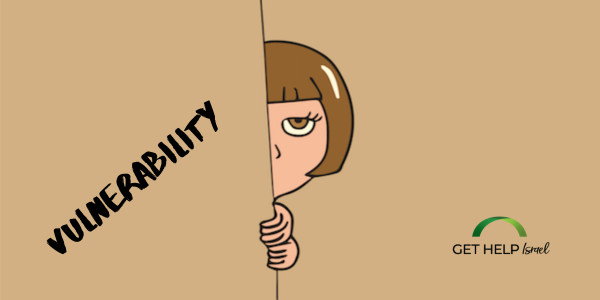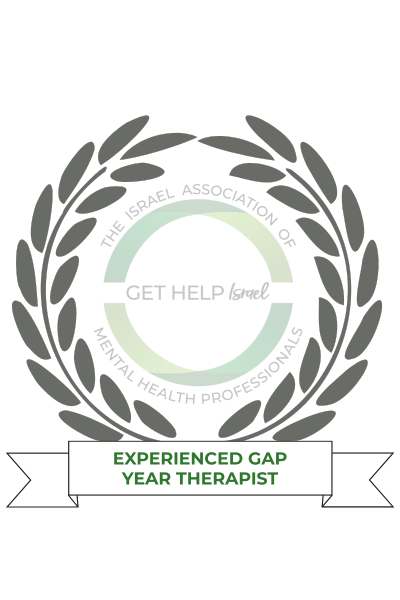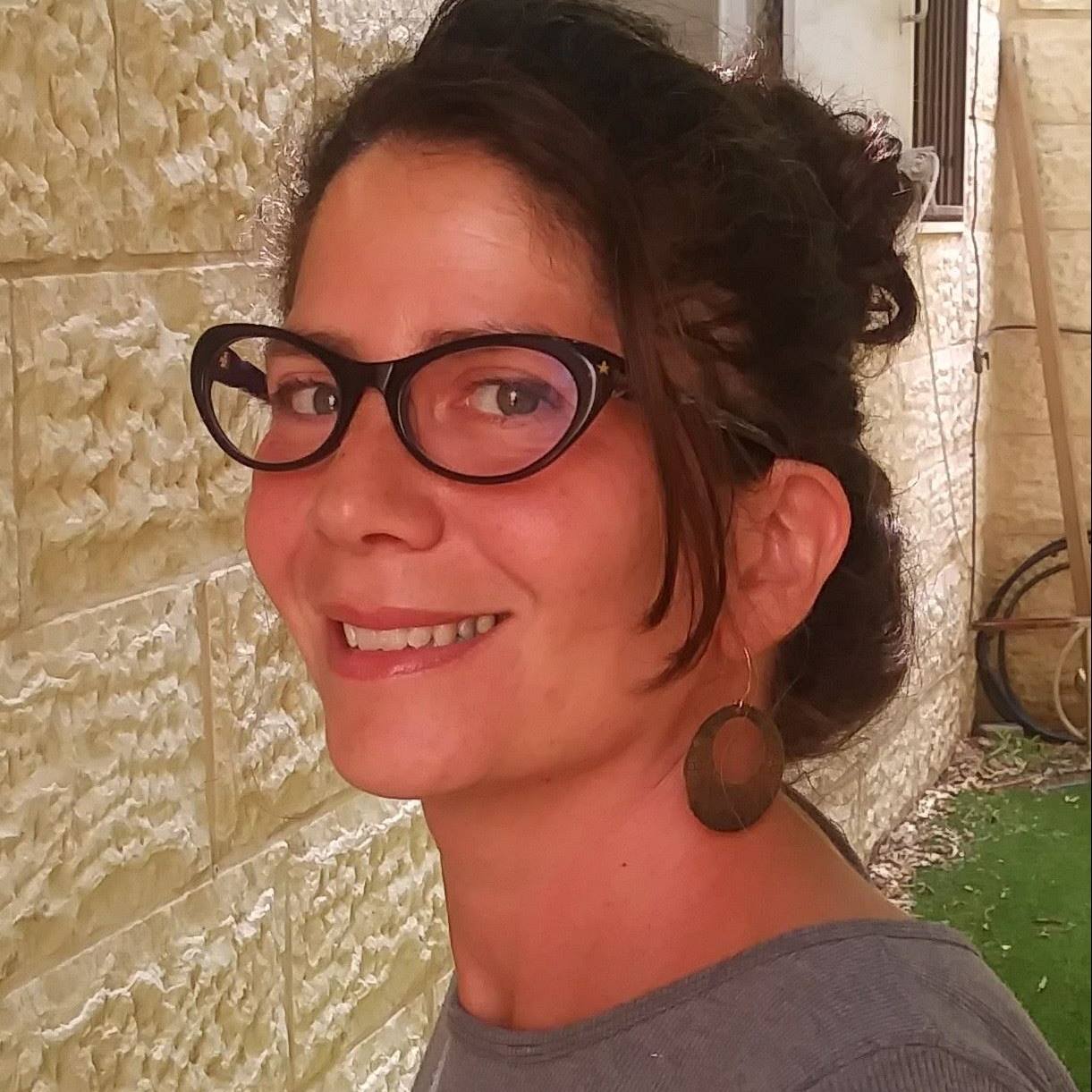Nancy Schwartz
Credentials
Finances
Licensed in Israel
Licensed Abroad
- 11 Eilat Street apt. 8
- Jerusalem, 91000
Nancy Schwartz
 Verified
Verified
Credentials
Clinical Social Worker
LMSW
Finances
250-350 NIS
None
Sliding Scale | Student Discount | Lone Soldier Discount
ABOUT THE THERAPIST
I've been in practice for 17 years, and during this time, I've experienced my clients make profound changes in their lives. I'm a licensed therapist that offers guidance by helping individuals navigate and heal from PTSD, trauma, loss, depression, anxiety, and life transitions. I aim to establish a safe, trusting relationship with my clients in a warm and caring environment. My method is an integrative approach which combines many therapeutic modalities to assist my client on a healthier path. I tend to combine a psychodynamic perspective with a trauma sensitive approach. In therapy I work along with my clients to create plans and goals that will best serve their needs. Within my practice, its important for me to be client-centered and believe that you are the expert of your experience. I will work together with you to bring down those defenses and assist to build effective coping strategies to help you to find your healthiest and most empowered version of self.
To schedule a consultation, feel free to contact me via phone or email.
Don't hesitate to be in touch.
QUALIFICATIONS
LMSW
New York University
2007
Degree
LMSWEducation
New York UniversityYear of Graduation
2007Years in Practice
17
Registered Social Worker in Israel
29216
LICENSED ABROAD
License Category
Clinical Social WorkerLicense Number
078054 New YorkDISTANCE COUNSELING
Telephone Counseling, Online Therapy
BLOG POSTS

Embracing Your Fear
Eight years ago when I was diagnosed with Lyme disease I had a deep-seated fear of never walking again; that I would never be able to take long aimless walks like the days before.

Vulnerability Just Ahead
Is feeling vulnerable a good thing? Many of us see it as a sign of weakness, as we’re not being good enough!! We’re afraid of not being seen by others as the “perfect” mother/father, spouse, child, worker, etc.
PRIMARY SPECIALTIES
Anxiety / Panic
Depression
Self-Esteem
Stress Management
Trauma / Post Traumatic Stress Disorder PTSD
ADDITIONAL SPECIALTIES
Addictions
Adjustments
Family Issues
Grief
Mood Disorders
Obsessive Compulsive Disorder (OCD)
Psychosomatic Disorders
Self-Harm / Suicide
Lone Soldiers suffering from PTSD
CLIENT FOCUS
Population
Adolescents
Adults
Couples
Men
Women
Geriatric
Languages Spoken
English
TREATMENT APPROACH
Acceptance and Commitment Therapy (ACT)Acceptance and Commitment Therapy (ACT) is a form of psychotherapy that encourages individuals to accept their thoughts, feelings, and experiences without judgment and to use them as tools to help them to make changes in their lives that are consistent with their values. It is based on the idea that by changing the way we think about our inner experiences, we can reduce emotional distress and increase our sense of well-being.
Art TherapyArt therapy has clients express themselves through creative mediums such as drawing, painting, collage, coloring, or sculpting. Clients can interpret their subconscious world that is expressed in their art which could lead to a better understanding of their feelings and behavior. Artistic talent is not a prerequisite for art therapy as it’s not as much about the end result as much as it is about the process. The therapist looks for meaning in the creative choices of the work and the clients’ inner world. This therapeutic method enables clients to express their inner thoughts and feelings through creative expression rather than just talking about them.
Attachment-Based Family Therapy (ABFT)Attachment-based family therapy (ABFT) is a form of psychotherapy that focuses on the family's relationships and communication patterns. It is based on the theory that strong and secure attachments between family members are essential for emotional health and well-being. The goal of ABFT is to identify any problems in family relationships, enable family members to become more attuned to each other’s needs, and build a secure bond between them. It also helps family members to practice healthy communication skills, learn effective problem-solving strategies, and build trust within the family.
Cognitive Behavioral Therapy (CBT)Cognitive Behavioral Therapy (CBT) is a type of psychotherapy that focuses on how one's thoughts, feelings and behaviors are connected and can be changed. It is based on the idea that how we think (cognition) and how we feel (emotion) can influence how we behave. CBT helps people identify and challenge distorted thinking and replace it with more balanced thinking, leading to improved mood and behavior. ‘Homework’, usually containing practical writing exercises, is often completed by the client between sessions to reinforce the therapy. Examples of tools that practitioners often use are journaling, challenging beliefs, and mindfulness.
Expressive Arts TherapyExpressive Arts Therapy is particularly beneficial for clients who struggle with describing what they are feeling verbally. Through imagination and creation of different art forms, clients are able to interpret and communicate their inner world and catalyze healing. Expressive arts therapy can involve the use of multiple modalities, such as visual arts, music, movement, drama, storytelling, poetry, and play. It is used to help individuals of all ages, including children and adults, to explore their feelings, reconcile emotional conflicts, foster self-awareness, manage behavior and addictions, develop social skills, improve reality orientation, and solve problems.
Interpersonal Psychotherapy (IPT)IPT focuses on the relationships and interactions an individual has with others. It is based on the premise that the way that we interact with others can have a significant impact on our emotional well-being. During IPT sessions, the practitioner will work with the client to identify patterns of behavior and communication that may be contributing to their emotional distress. They will then help the client learn new ways of interacting with others, as well as teach them coping skills to manage difficult emotions. It is a time-limited therapy, typically lasting between 12-16 weeks, with the goal of helping the client develop long-term coping skills.
Mindfulness-Based Cognitive Therapy (MBCT)Mindfulness-Based Cognitive Therapy (MBCT) is a form of therapy that combines cognitive behavioral therapy with mindfulness practices. It is based on the idea that our thoughts, emotions, and physical sensations can affect our mental health. MBCT helps individuals become aware of their thoughts, emotions, and physical sensations in order to gain insight and control over them. MBCT helps clients learn how to recognize their sense of being and see themselves as separate from their thoughts and moods. This separation can free the client from thought patterns in which the repeated negative messages may be dominating the client’s focus. After developing an awareness of the separation between thoughts, emotions, and the self, people in treatment may find that while the self and the emotions may exist simultaneously, they do not have to exist within the same dimension. The healing can take place when one learns how to interject positive thoughts into negative moods and thereby create a shift in mood.
Person-Centered Therapy (Rogerian Therapy)Person-centered therapy, or Rogerian therapy, was developed by Carl Rogers in the 1940’s. It is a form of talk therapy that emphasizes the importance of providing psychological safety, unconditional positive regard, and empathic understanding to clients. This type of therapy is based on the belief that individuals have an innate capacity for self-actualization and self-understanding and that the therapist's role is to provide a supportive environment in which this process can take place. Through the use of active listening, open-ended questions, and non-judgmental reflection, the therapist helps the client to explore their thoughts, feelings, and experiences in a safe and accepting environment. By doing so, clients are able to gain insight into their issues, develop a greater understanding of themselves, and work towards personal growth.
Relational PsychotherapyRelational psychotherapy is a form of psychotherapy that focuses on a person’s relationships with others and the dynamics between them. It emphasizes the importance of the therapeutic relationship between the client and the therapist, and it explores the meaning and purpose of relationships in the client’s life. Relational psychotherapy seeks to understand how the client’s past relationships shape their current experiences and how the client interacts with others. The goal is to help the person develop healthier relationships and better communication skills so they can become more emotionally connected to others.
Trauma-Focused Cognitive Behavioral Therapy (TF-CBT)Trauma-Focused Cognitive Behavioral Therapy (TF-CBT) is an evidence-based practice used to help children, adolescents and their parents who have experienced a single or multiple traumatic events. This type of therapy combines cognitive and behavioral strategies to help people process their traumatic experiences, manage their distress, develop coping skills, and restore their sense of safety and well-being. TF-CBT focuses on education and skill-building, creating an environment of safety and trust, and using therapeutic activities to help people understand their responses and control their symptoms. Children are shown how perceptions may be distorted and are given the tools to redesign those perceptions. TF-CBT is a skills-based model, and it requires the child and parent to practice its components in order to be optimally effective. Parents and children are commonly asked to practice skills at home.
SERVICES OFFERED
Individual Therapy
Consultation
Couples Therapy
Group Therapy

Therapist's Experience with Gap Year Students
I've worked with Gap year students for several years in Jerusalem. Addressing; Anxiety, Depression, Adjustment issues, and Social anxiety as well.
BLOG POSTS

Embracing Your Fear
Eight years ago when I was diagnosed with Lyme disease I had a deep-seated fear of never walking again; that I would never be able to take long aimless walks like the days before.

Vulnerability Just Ahead
Is feeling vulnerable a good thing? Many of us see it as a sign of weakness, as we’re not being good enough!! We’re afraid of not being seen by others as the “perfect” mother/father, spouse, child, worker, etc.

 Verified
Verified

